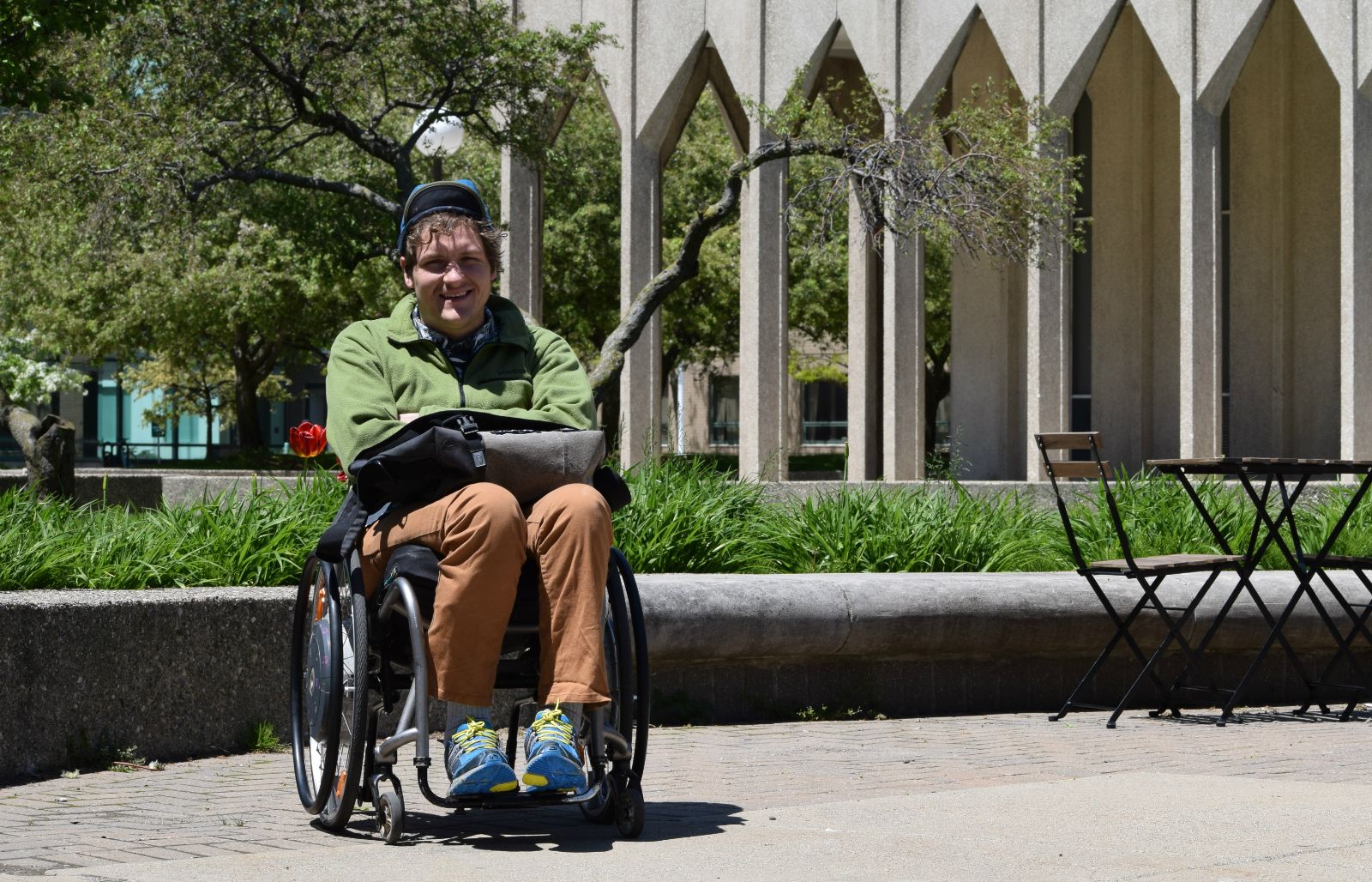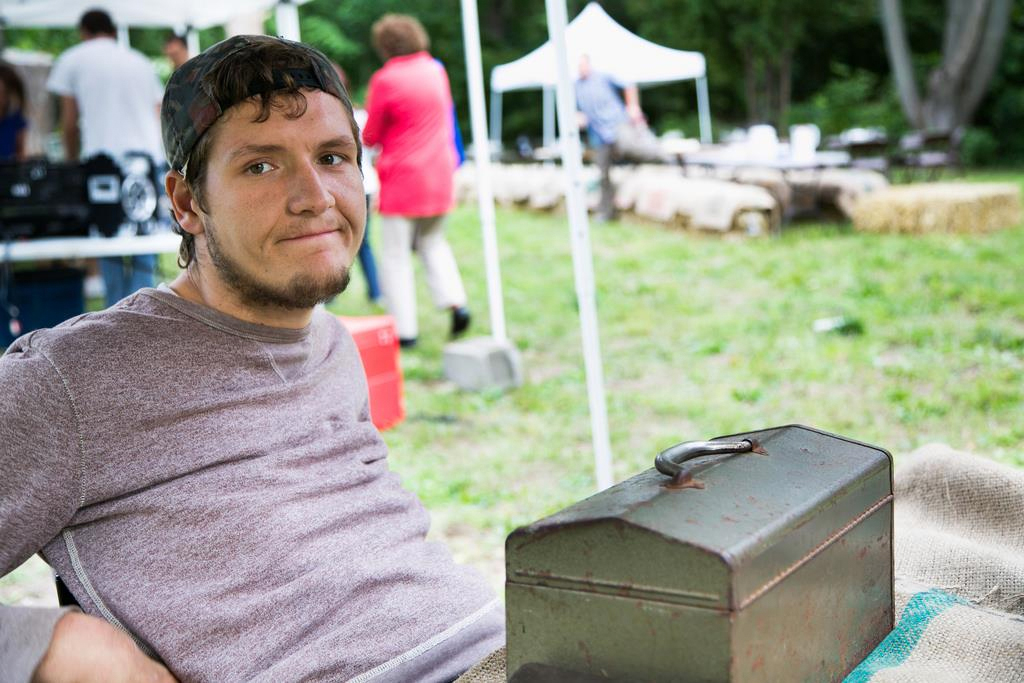Urban planning student works to alleviate food scarcity

Jared Talaga, 26, is a graduate student working toward a master's in urban planning at Wayne State University. He is working alongside Growing Hope, an agricultural focused nonprofit in Ypsilanti, Michigan, to assess their local food system this summer. Through his data collection and assessment, Talaga hopes that he can help persuade people to grow their own food by showing that farming is an economically viable occupation that also provides a healthier lifestyle.
In high school, Talaga had no idea he would gain interest in urban agriculture. Instead, he spent his time skiing, skateboarding and surfing with plans to pursue a career in architecture. After a skiing accident left him paralyzed, he yearned for a new way to spend time outdoors. When Talaga took a class in urban planning that required him to work on a farm in Lansing, he found his new outlet.
"I kind of fell in love with it because I got to spend time outside and do something I love. Then I saw the benefits that it has for the community and the people around it," said Talaga.
Detroit, said Talaga, is an example of a food insecure area, which is one of the reasons he chose to pursue his graduate studies at Wayne State. Food insecure area, or areas that don't have access to healthy and affordable food, are common in postindustrial cities. In such cities, "there is a need for jobs and a need for healthy food, and urban agriculture can bridge the gap."
The goal of doing all of this is to make communities healthier and to make people healthier so they can engage more in their communities and live healthier lives.
"I eat pretty healthily because I am afforded the opportunities to do so by working at the farmer's market and growing my own food, but I know there are lots of people who aren't afforded those same opportunities," said Talaga.
Talaga decided to follow this passion by focusing on urban agriculture. Working with Growing Hope and Wayne State University for his research, he aims to alleviate food scarcity during his summer internship. Talaga will be collecting and analyzing data that will focus on local food production, consumption and procurement.
"I'm doing an inventory of all gardens and farms that are in the city of Ypsilanti," said Talaga. "Then we're mapping the locations of those gardens and figuring out how much square footage is in production or how many people are growing their own fruits and vegetables."
Through his research, Talaga hopes to help organizations like Growing Hope show the benefits of growing your own food, which range from financial stability to healthier food choices.

"The goal of doing all of this is to make communities healthier and to make people healthier so they can engage more in their communities and live healthier lives," said Talaga.
Talaga said he wants to continue doing research and aiding in the development of urban agriculture so that people can access the resources they need to live a healthy and fulfilling life.
"I think healthy food is a right that everyone should have. It doesn't matter where you live or how much money you have you should be able to get healthy food."
By Carly Adams, College of Liberal Arts and Sciences communications associate